Lisa and Mike Hahn perfectly complement each other.
She is a chef; he’s a runner. They adventure far and wide, planning trips around races and restaurants, getting giddy about what new flavors they will get to explore. When the two are together, they refer to the other as just “Hahn,” which may be confusing when you first meet them, but after a few minutes, it just makes sense: They’re an inseparable duo who have been together for a very long time and whose lives mirror each other since they were very young.
In fact, they even joined the ambassador group together – as “Mike and Lisa Hahn.”
“We just have so much energy for life. We’re so excited about what the day might bring. We’re always going where the wind blows us. I think it’s that spirit of adventure: What is this day gonna bring?” says Mike.
“We’re just so excited all the time,” said Lisa, quickly following up. “It sounds ridiculous, but every time you talk to us, this is what you’re gonna get.”
Both wildly creative with a deep passion for what they do, Mike and Lisa always have projects in the works. Lisa brings her creativity to Pretty Munch, a blend of food, fashion and adventure with the tagline “This could be weird.” Mike’s creative outlet revolves around running; he recently launched Last Chance Running to blend his love of writing and running into one.
No matter where their lives pull them, they always find time to support one another and their family, from the small adventure of everyday cooking to a big zest for outdoor adventures and exploration.
“... it’s just kind of the way we do life. While we have a serious side, there’s also a lot of playfulness. … it’s just the way we live,” says Lisa.
Read on to learn more about Lisa and Mike Hahn, and how they weave their love for Athletic Brewing non-alcoholic beer through all their creative endeavors.
***
Tell me a little bit about yourself, and how fitness and sports came into your life.
Mike: From an early age, I watched my dad. He was a big runner in the late 70s/early 80s, so I watched and admired him as a little kid. I think you internalize those things without realizing, and it becomes aspirational for you. I did cross country and track in high school – I didn’t love it … I was always the kid who was cutting the course on our training runs, or sitting down on the corner as soon as I got out of sight of the coach. I didn’t necessarily fall in love with it until much later in life.
I started running again at age 35, mostly to get in shape, and ended up just falling in love with running. I set my sights on my first marathon and was off to the races. That was around 2009, and it’s kind of been no looking back since. I really love so much about running: It’s my jam. I’m not really into a lot of other sports.
Lisa: We both grew up in Montana and then moved to the Seattle area for college. Growing up in Montana, it’s just part of your DNA to be outdoors – hiking, rafting, riding bikes … it’s what we did as kids. We didn’t have a lot of other entertainment. When we talk about the hiatus Mike took, it was mostly because we had young children, so that was our priority at the time.
Once our kids were a little more grown is when he started running. I took more of a cheerleader role, but we also did a lot of team focused activities. We launched a beer-focused running group in the Seattle area that would pull more than 100 people every week and support local businesses. We raced cyclocross. Mike would even teach cyclocross clinics just to get people involved. It was very community focused, which is just part of who we are. Then we moved back to Montana and had those mountains right at our doorstep again. You can walk out our door and be on the trails in less than a quarter mile. It's pretty special.

Being an avid cook, I’d love to hear how you got started down that path.
Lisa: We’re both creatives and went to school for design and photography. We both got sucked into the corporate world early on. I was feeling a little bit burnt out, so I decided to go to culinary school. I did it at night while continuing to work my corporate gig during the day. Once I graduated, I decided to jump both feet in into the restaurant industry, and continued to cook until we left the Seattle area. The restaurant I cooked in was very meat-focused, but we also had a vegan side of the menu. I think you’ll see that contrast in everything that we do, with curiosity being at the core of it. I mean, to go from making guanciale to cashew cheese all in one day; it’s like going from ultramarathons to teaching cyclocross clinics – we like to try it all.
When we moved back to Montana, I didn’t really find the type of environment I wanted to cook in. So I went back to the corporate world. While I’d come home and still cook at night, there was just something missing. Thankfully I’m in a place now where I get to focus on cooking.
Mike: I actually grew up in a restaurant family. My family has had the “go-to” Chinese restaurant in Helena, all the way back to my grandpa in the 50s and 60s, so I grew up in that environment. But I’m definitely the cheerleader on the cooking side. I know good food, but I don’t necessarily cook good food. I think it’s interesting how we support each other in that way.
Lisa: Which isn’t true, he’s a good cook too.
How is it to be an athlete and to live with someone who cooks amazing food?
Mike: It’s wonderful. I think, with food, there’s emotion attached to it. It feeds this spirit of curiosity that we have. Cooking for us isn’t necessarily favorite recipes or fixed meal plans; it’s always an experiment. I get to be a part of that, both from the creative side and helping decide which direction we’re going to go with a meal, to tasting the finished product. She’s always trying to get me on camera, but I’m a little bit camera shy. Every once in a while, she’ll sneak up with a camera to try to get me tasting. But, it’s just integral in our lives. We’re both self-described foodies, although that term gets tossed around a lot. We love food. It’s very central to what we do.
Lisa: One thing he isn’t mentioning is that he really has had to sacrifice a lot for me to be able to cook. When I went to culinary school, I was still working my corporate job, I was going to school, and then I was working at the restaurant at night. We still had young kids at home. I would get home every night, to a plate of food waiting for me – because the last thing you do as a cook, typically, is eat. He completely embraced all of it while I explored this thing that is such a big passion in our lives – and he continues to do so.
Even when it comes to his diet and racing. We had this conversation a couple weeks ago: Mike says, the Boston Marathon is getting close, so maybe we should eat a little healthier, and I was like, well I had doughnut burgers on the menu, does that sound OK? And he was like, OK, we can do doughnut burgers, but maybe after that we can do something a little bit more anti-inflammatory.

How do you balance your active life and your love for food? I know that oftentimes many professional chefs struggle with weight gain and balancing health versus flavor, but at the same time, you do know a lot about food, health and fitness, which is a big plus.
Mike: I think food is just integral to everything we do. It is fuel, on the one hand, so I'm always thinking ahead to how the food we eat will impact my running performance. For instance, on vacation [for the Boston Marathon], we’re very much focused on the next meal and how that’s gonna fuel us. Every once in a while we sneak in a cheat, like we had malasadas for dessert last night. I think we had doughnuts for breakfast too … you’re going to sense a doughnut theme here. [laughs]
Lisa: The nice thing is Mike really loads up on vitamins, and he makes us an incredible smoothie every morning. He makes sure we get the nutrients we need even on the days where I’m experimenting a little more, but I do try to cook every side of the spectrum.
Mike: Lisa’s very thoughtful. She tries to time her cooking content around meals, so it’s not just food for the camera or food for Instagram, it’s food for our life, so the stuff she’s making for Pretty Munch is the stuff we eat.

Do you think having this active side helps you focus on foods and recipes that are more healthful and nourishing?
Lisa: I think it does, but we both also have a playful side, so if there’s something that we’re curious about or feeling inspired by, we won’t run away from it.
Mike: I think food should be fun, but I think it can be fun and healthy at the same time. I think it’s much like fitness, or whatever the sport is, as soon as it’s not fun and it becomes a chore, or it becomes only about the metrics or the counting of this or that, then it’s harder to stick with. So we look at it like that. There has to be an element of play, experimentation and fun.
Lisa: The one thing we do try to do with our food is we try to make it accessible. We live in Montana where not only do we not have access to a lot of ingredients most people have, but we are really active, so you won’t often find us posting a recipe that will take 8 hours to cook. It’s like, no, let’s make this and then let’s get outside and do a thing. When the weather’s nice, you’ll find us cooking outside a lot. We used to have a little off-road teardrop camper, but now it’s a van, so we like to get in and go where the wind blows us. We make our food work with those situations as well. I think more than ingredient-specific, it’s lifestyle-specific to the way we want to live and the things we want to do.
Who are some of your favorite chefs, or people you take inspiration from when cooking?
Lisa: We all love Anthony Bourdain, who kind of paved the way for us. Gotta shout out Julia [Child]. David Cheng, he has done amazing things. But I also have a couple of favorite female chefs: Sophia Roe – everything she puts her hands on, I just swoon. Alison Roman … there’s so many people doing neat things out there, and there’s so many chefs that aren’t household names that I get inspiration from. That’s the beauty of social media these days. You can follow someone who has 600 followers but they’re making incredible food.
Mike: Bourdain is really aspirational, just from how he integrates culture and the stories around food. He was admittedly not a great chef himself, but he understood that food is a story that involves the people who make it, and the people who eat it, and where the food comes from, and that’s very much our spirit.
Lisa: I was recently making edits to my business plan, and I had to do a line that presented a visual of what Pretty Munch is, and I went with: “Anthony Bourdain, but without the whisky and smokes.”
How does your creativity and your personality come out through your cooking?
Lisa: As I mentioned, we’re both creatives. I’ve gone to school for design and photography, I’m dually licensed in the beauty industry, I’m a registered yoga instructor, and I’ve worked in marketing for years, so I think one thing I’m always trying to figure out is how do I make food, but also “make it fashion,” as nerdy as that sounds.
I think that’s the beauty industry side of me coming in. So for example, a dish like seared salmon with a side of salsa: How do we make it “fashion” ... how do we make it pretty? That’s where that Pretty Munch comes from: We’re always trying to look at something that someone would consider an “everyday food,” but make it feel special.

Aside from the cooking, I’d love to jump over to the running side of things. Tell me about another one of your creative endeavors: Last Chance Running.
Mike: Last Chance Running is also a content project. We’re both creative, as Lisa said. I’m a designer – I have a degree in design – but in my heart, I’m a writer, so it’s a writing project that explores the intersections of running and sobriety. We quit drinking about 2.5 years ago.
Before that, full-octane beer was a big part of our lives. It was integrated into everything we did, including running. In Washington, we started a running club that was beer-centric; that was the idea of it. You meet at a bar, you go run a few miles, you come back and then have beer. It was a social running club in that way.
Now with this new perspective on alcohol, I started seeing these connections between running and sobriety. What’s required to be successful in running, some of those same things are required to be successful in sobriety. So I started making these connections and I thought maybe there’s something here, something to share with the world.
It’s a new project. I just launched at the end of March. I’m really excited about it. It’s almost this infinite well of ideas. I have pages and notebooks full of ideas for content and a ton of energy for this project.
As far as where this goes: It’s kind of our nature to not plan things out too far, but we like to see where things take us. I might see this going toward coaching. I really just want to help other people.
If this idea resonates with somebody, that’s great, whether it's through the content or one-on-one coaching. I have this idea of integrated coaching, which would take sober coaching and integrate it with running coaching, which would serve people in that way.
How did you find Athletic Brewing and the ambassador program?
Mike: We were still drinking full-octane, and for one of our earlier YouTube videos, we tried seven different non-alcoholic beers. I think we were aware of the brand, but it was something that we tried while we were still drinking. I think it was something that you know in the back of your mind that maybe you should cut back a little bit.
For me, it was really important to have Athletic as we put down the full-octane stuff. It really helped with the transition. You could still have your beer watching the game; you could still have your beer after a run. But Athletic was the brand that looked like it was for us, compared to some of the others that were more traditional.

Lisa: And in that taste test, it was the beer that we were like, “Woah, we can drink this.” We’re big skiers, so for our season passes that year, we were still drinking at the time, but it was the pandemic, so we were able to take our ski pass pictures at home instead of going to the mountain to take them. We were topless with our skis and a beer in our hand, and everybody assumed it was a normal beer, but it actually was Athletic in the glass because we were already dabbling in NA.
But we fell in love with it instantly. The flavor is incredible. And I love, love, love that there are so many seasonals that are constantly coming out and changing the game. We found when we were drinking alcoholic beers that they all just ended up tasting the same. The neat thing with Athletic is every time you have a seasonal, it’s so different from the last, and it’s something you just fall in love with. I can’t get Rainbow Wall out of my head!
How have things changed for you in your cooking. Alcohol is also a taste; it’s also an ingredient. How has that affected your recipes?
Lisa: When it comes to cooking, having Athletic has not affected flavor at all. We keep a handful of the beers stocked. We keep the All Out dark in our fridge, and we always have the Run Wild and Free Wave IPAs on hand. I am able to make any recipe that I would have made previously using Athletic brews, which has been amazing.
As far as wine goes, I haven’t really found that replacement, so I'll look for healthier options like citrus, vinegars, things like that. But anything that's beer-infused, the flavor – in my opinion – is even better when I use Athletic than when I use a fully-fueled beer, because you don’t get that bitter element of the alcohol that’s in a typical beer.
What are some of your proudest achievements?
Lisa: We were both teen parents and have raised 3 incredible kids that are our favorite people in this world. We really are a small little posse. Looking at everything we’ve done – and we’ve done quite a lot – our kids are, I think, the very coolest.
Mike: I’m proud of our sobriety too. It’s been a big change. It’s work, but it’s been so transformative. I’m proud of us for that.
Lisa: Quitting alcohol is the biggest gift we’ve ever given ourselves. We’re more present in everything we do. Life feels so much fuller when you don’t have that hanging over your head, like, should we grab a beer? Or I feel like crap because I drank all night. You just feel things differently. We did it together and supported each other. We talked about the hard things and got through those together. It’s really beautiful to look back on.

Do you have any bucket list races, events or achievements that you’d like to attain one day?
Mike: The Boston Marathon this year was a bucket list. We were here in 2013, so coming back 10 years later was always a bucket list item, and here we are. It’s just really incredible to be back. Running-wise I try not to set my sights too far out and just see what is speaking to me in a given season. I wouldn’t take something like Western States off the table – who knows. Right now, I like to run as fast as I can, so something like that where it’s a little slower – and plenty of people can do it fast, don’t get me wrong – but I don't think I can do 100 miles fast. For us, it’s just as much about the journey and what we experience along the way than it is about the races.
What’s your favorite (recovery) food?
Mike: I used to think beer was a recovery food. I’ve learned, as I’ve learned more about nutrition, it’s not actually a great recovery food. But I do like an Athletic brew. You get all the good things. And I also love a big ice cream cone after a big long run day.
Lisa: We always take Athletic to races. It is amazing how many people come up to us and ask about it. It’s a huge conversation starter. Some of these are smaller hometown races, where the exposure isn’t quite there yet. We always share them!
When we used to race cyclocross, all I would say over and over in my head was “cheeseburger, cheeseburger, cheeseburger” … it was like the carrot I would look forward to at the end: A cheeseburger.
What do you like to do on rest days?
Lisa: I don't think there are a lot of rest days on the cooking side. Those “rest days” in the kitchen are go-to recipes we’ve had for years where you don’t have to think about it, or we decide to go out to eat.
Mike: I struggle with rest days from running. That’s probably true for a lot of people. When you have something that’s this big part of your life and it’s taking up hours in your day, it’s tough to just remove it. But I like to use those extra hours to write and to work on my projects. I love to read. I’m not ashamed to sit down in front of the TV for a couple of hours and veg out. But rest days are challenging, and tapering is like a rest day times 10. So I just try to relax as much as possible.

What gets you up and out of bed every day?
Mike: We don’t have any problem with that, especially since we quit drinking. We just have so much energy for life. We’re so excited about what the day might bring. Today we made an on-the-fly decision to drive out to the coast and drive down to Cape Cod. We’re always going where the wind blows us. I think it’s that spirit of adventure: What is this day gonna bring? We fly out of [bed].
Lisa: Our life. We’re just so excited all the time. It sounds ridiculous, but every time you talk to us, this is what you’re gonna get.
What does Fit for All Times mean to you?
Lisa: Fit for all times, for me, it’s just kind of the way we do life. While we have a serious side, there’s also a lot of playfulness. I think [Mike] brings that into his training. The way we cook … I think it’s just the way we live.
Mike: It means ready for anything, and also being present for whatever the day brings. You’re there, you’re engaged, you’re not shutting down or closing things off. You’re open. That’s what having something like Athletic in our lives allows us to do: Be ready for anything, be open when it comes, and be present for it.
If you’re interested in joining the ambassador program, visit our Ambassador Community Page and sign up to be notified when applications open!
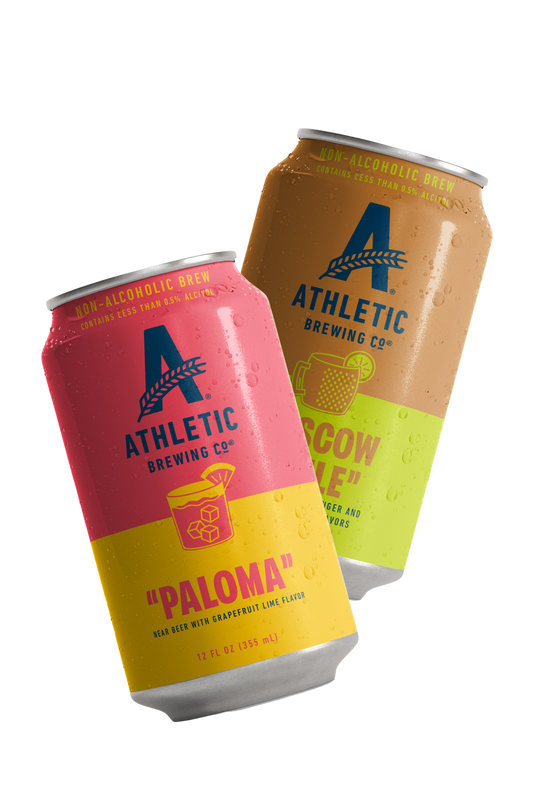
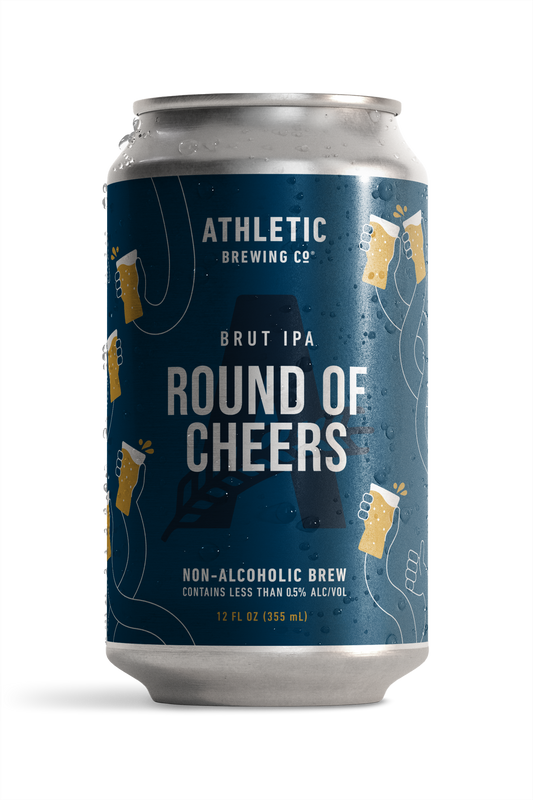
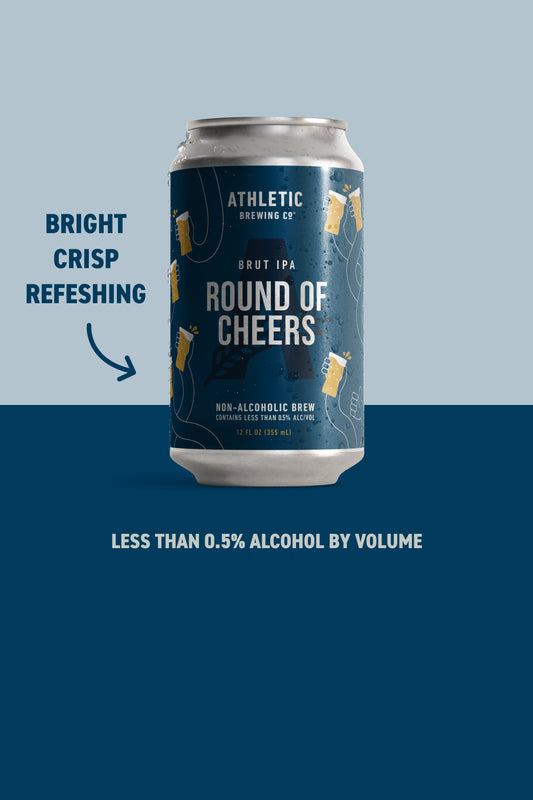
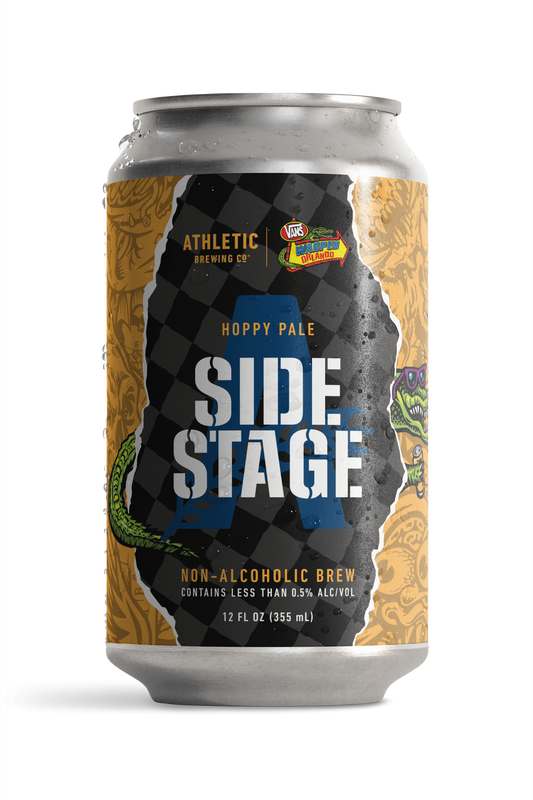

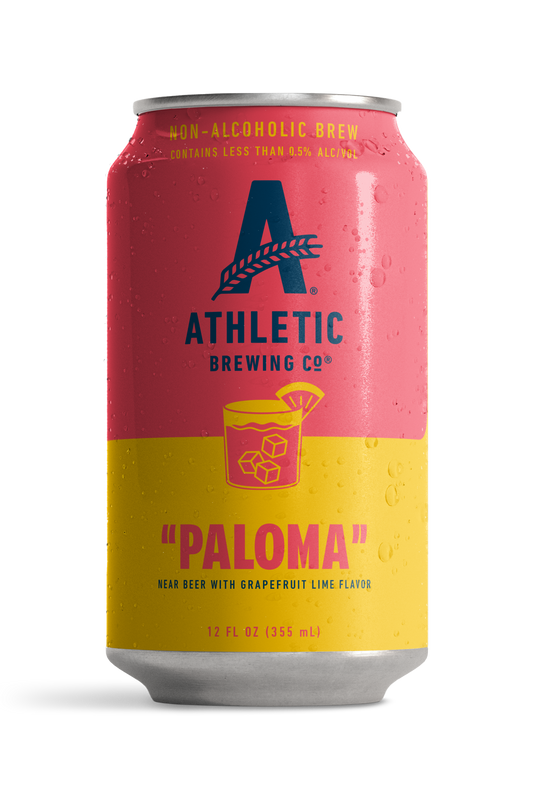
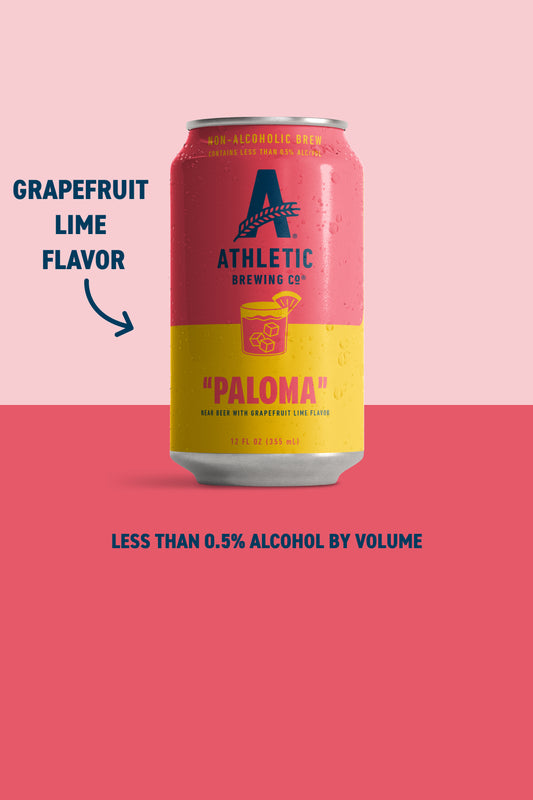
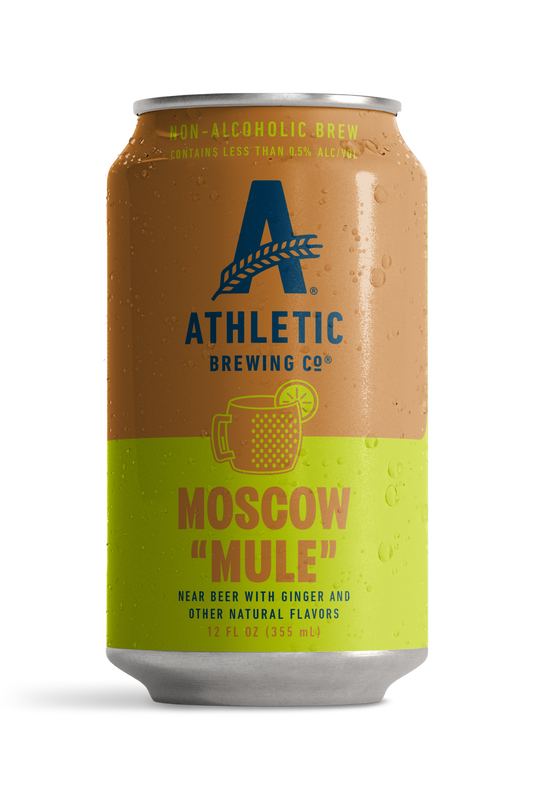
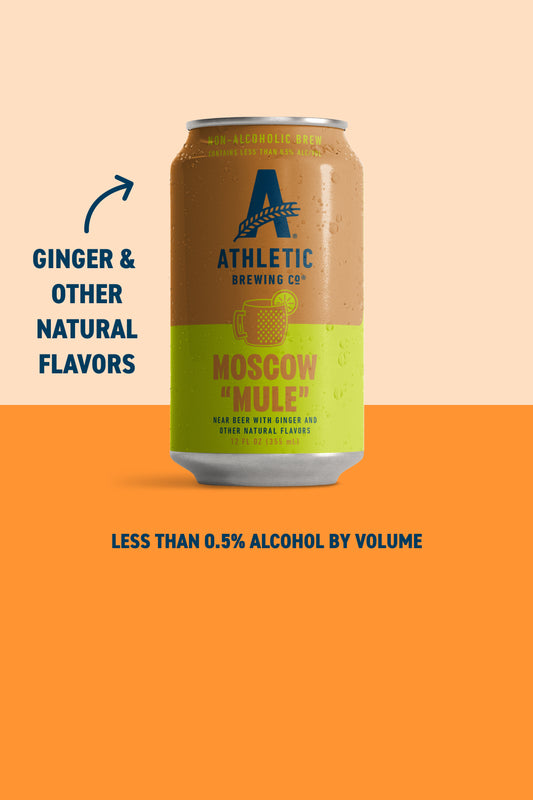
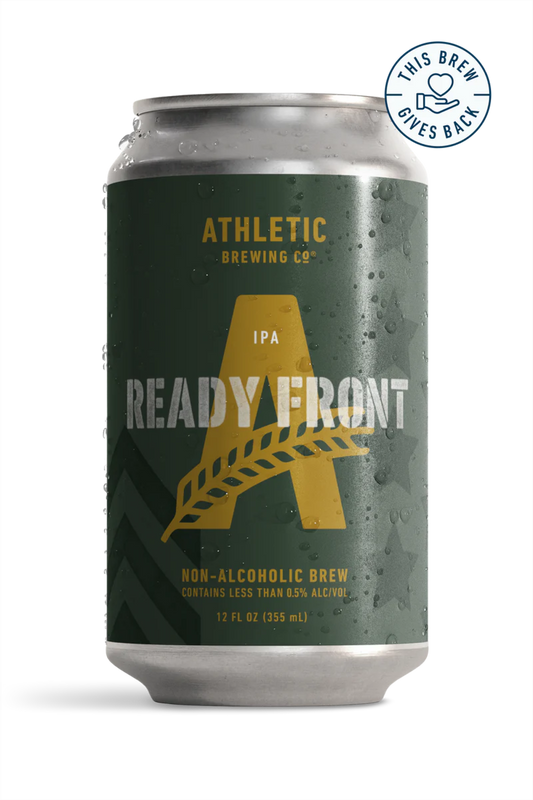
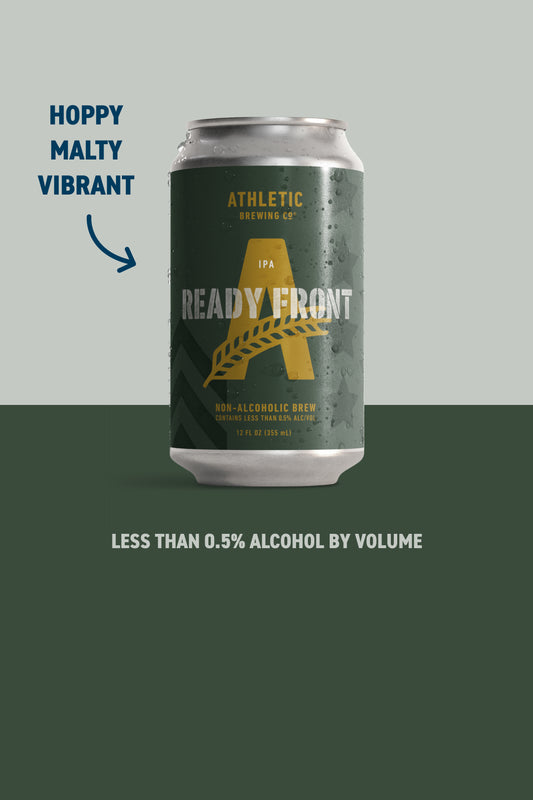
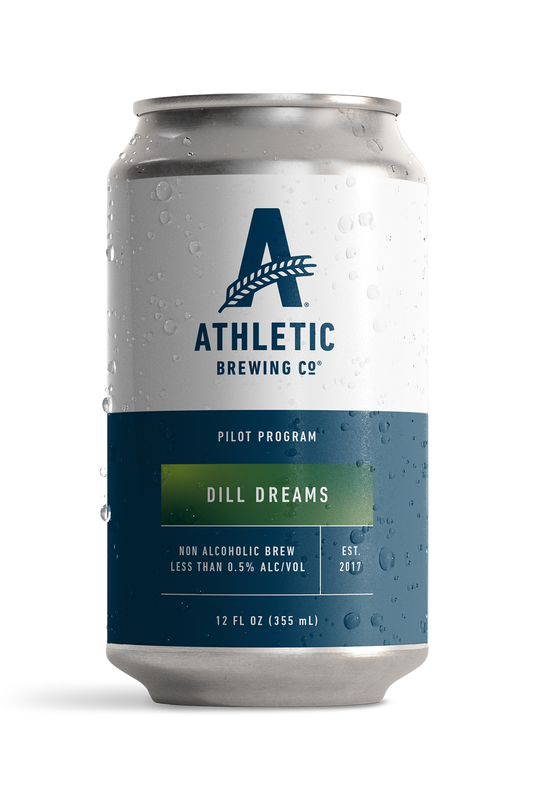

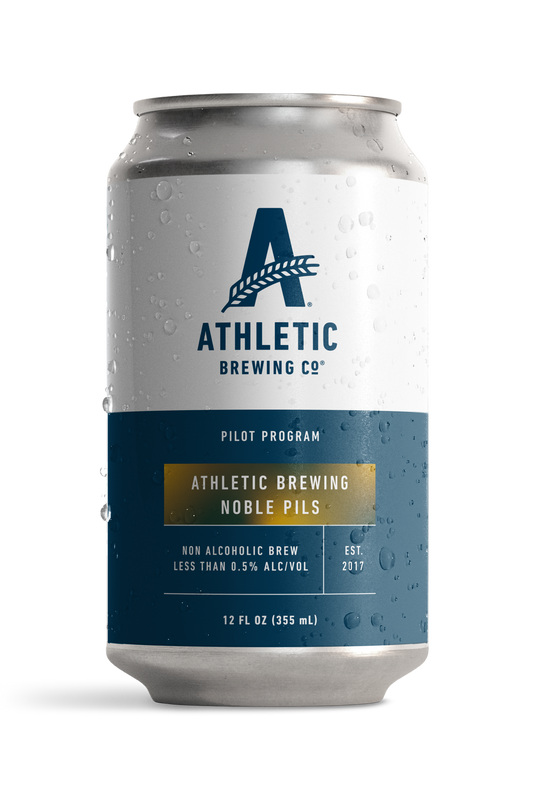
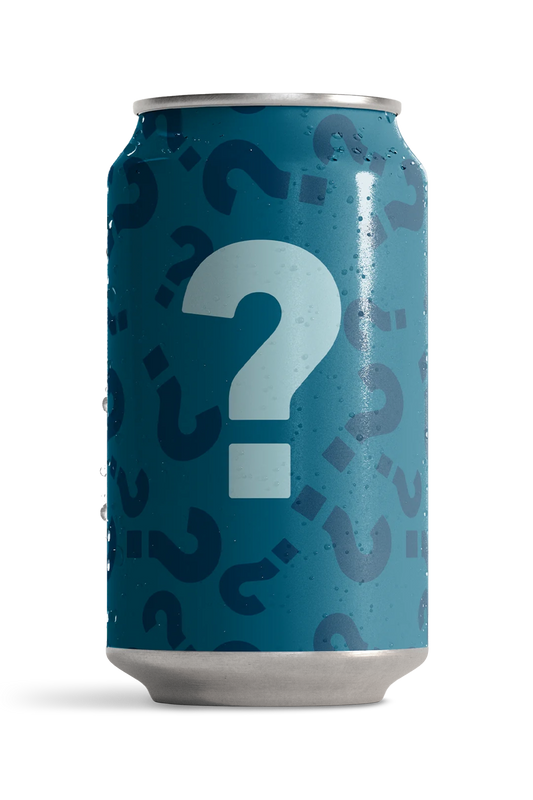
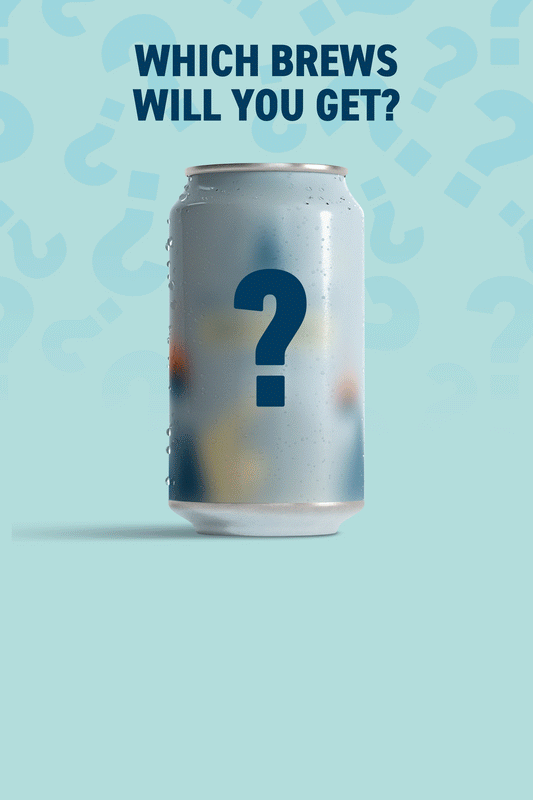
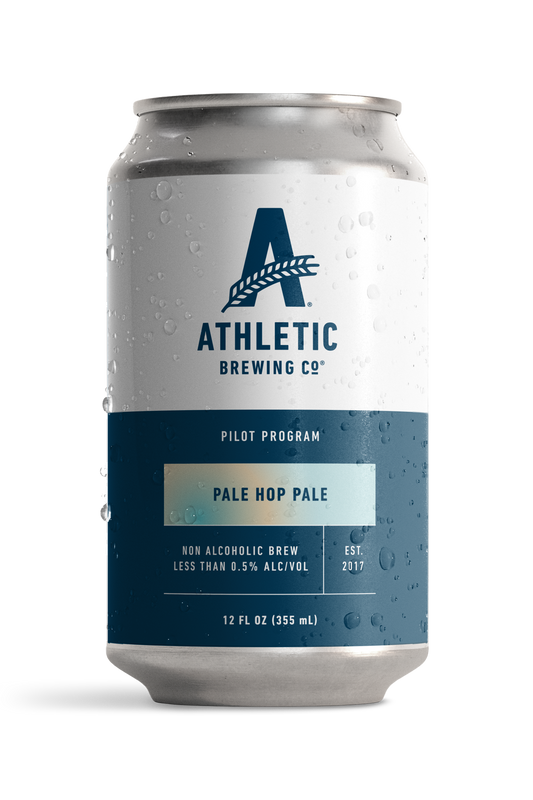
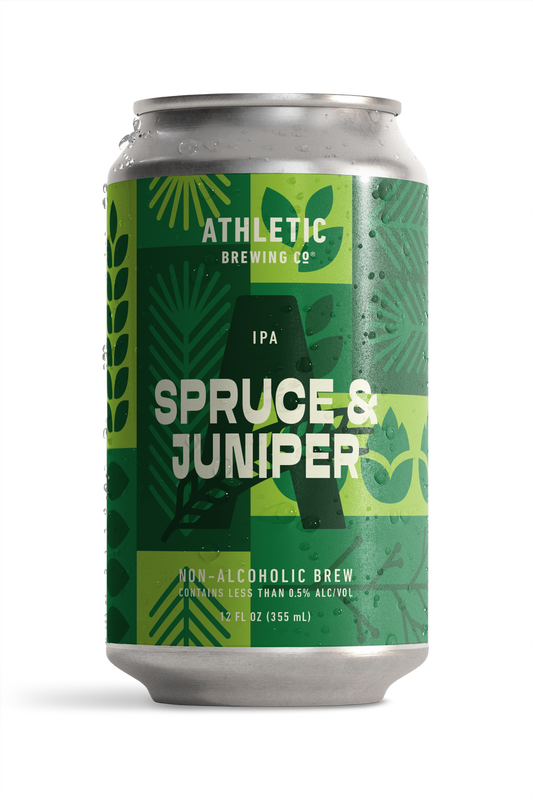
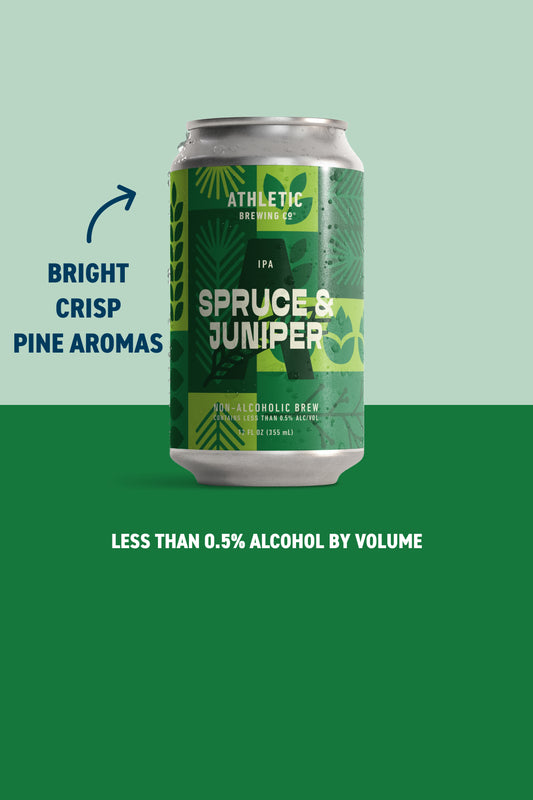









 Your Privacy Choices
Your Privacy Choices











